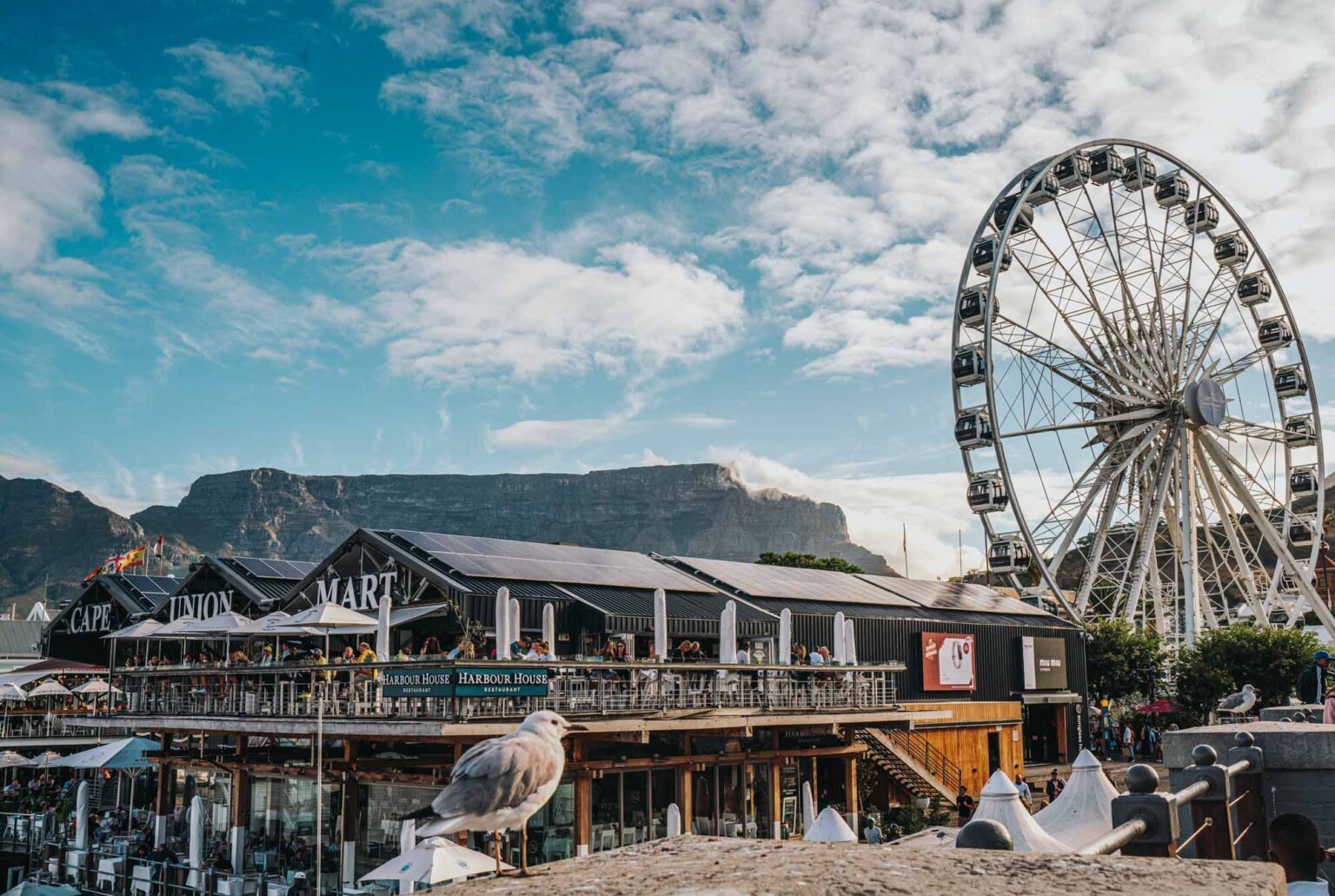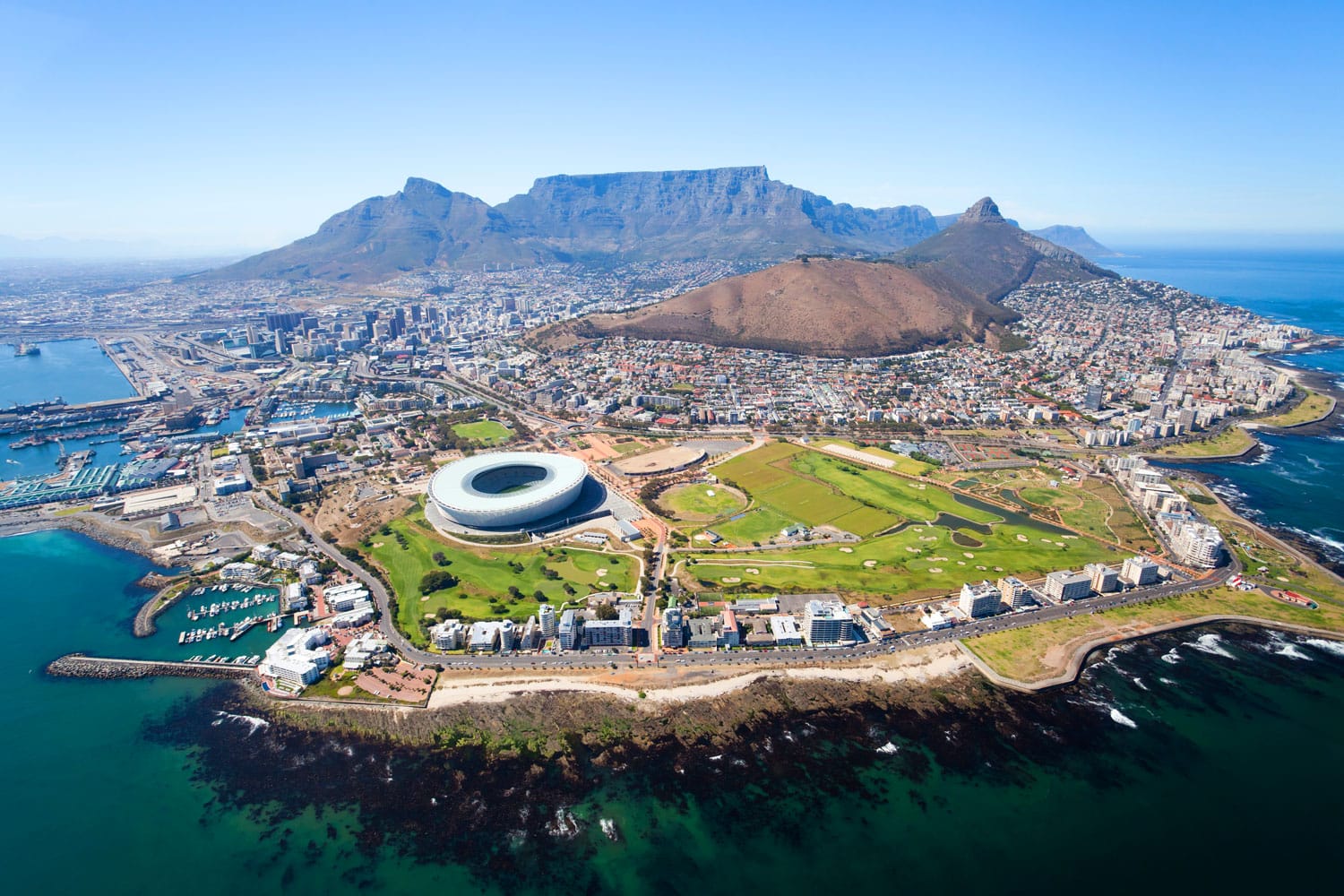
Cape Town, the "Mother City" of South Africa, is a destination that ignites the senses and captures the soul. Perched dramatically at the southwestern tip of Africa, where the Atlantic and Indian Oceans converge, this cosmopolitan city boasts a breathtaking natural beauty that seamlessly blends with a rich and complex history, a thriving arts scene, and a culinary landscape that tantalizes every palate. From iconic Table Mountain vistas to the poignant echoes of Robben Island, Cape Town offers an unforgettable experience for every traveler.
A Glimpse into History: From Colonial Roots to a Rainbow Nation
Cape Town’s history is as multifaceted as its landscape. Its story begins with the indigenous Khoisan people who inhabited the region for millennia. In 1652, the Dutch East India Company established a refreshment station at the Cape, marking the beginning of European settlement and a colonial era that profoundly shaped the region. This period saw the arrival of enslaved people from various parts of Africa and Asia, laying the foundation for the diverse cultural tapestry of modern Cape Town.

Related Articles about Cape Town: A Symphony of Natural Wonders, Rich History, and Vibrant Culture:
- The Windy City Beckons: A Comprehensive Travel Guide to Chicago
- Lombok: A Traveler’s Guide to Paradise Found
- Buenos Aires: A Whirlwind of Tango, History, and Passion – Your Ultimate Travel Guide
- Mexico: A Tapestry of Ancient Wonders, Vibrant Culture, and Sun-Kissed Shores
- Slovenia: A Pocket-Sized Paradise of Enchantment
The city later fell under British rule, and its strategic importance grew. The 19th and 20th centuries were marked by significant developments, including the discovery of diamonds and gold, which fueled economic growth but also entrenched racial segregation and inequality under the apartheid regime. Robben Island, a UNESCO World Heritage Site, stands as a stark reminder of this oppressive era, serving as a prison for political activists, most notably Nelson Mandela.
The dismantling of apartheid in the early 1990s ushered in a new era for South Africa and Cape Town. The city has since embraced its identity as a "Rainbow Nation," celebrating its diversity and striving for reconciliation and inclusivity. This journey is palpable in its culture, art, and the spirit of its people.
Top Attractions: Unveiling Cape Town’s Jewels
Cape Town’s allure lies in its diverse range of attractions, catering to every interest.
1. Table Mountain: The undisputed icon of Cape Town, Table Mountain offers unparalleled panoramic views of the city, the ocean, and the surrounding landscape. Ascend via the Table Mountain Aerial Cableway, a thrilling 5-minute ride with rotating cabins for 360-degree vistas. Alternatively, for the adventurous, hiking trails like Platteklip Gorge offer a challenging yet rewarding ascent. Once at the summit, explore the plateau, spot unique flora, and soak in the breathtaking scenery.
2. Robben Island: A visit to Robben Island is a profoundly moving experience. Take a ferry from the V&A Waterfront to this historic prison, which housed political prisoners during apartheid. Guided tours are led by former inmates, offering firsthand accounts of life on the island and the struggle for freedom. It’s a vital lesson in history and a testament to the resilience of the human spirit.
3. V&A Waterfront: This vibrant working harbor is a hub of activity, offering a plethora of shops, restaurants, bars, and entertainment options. Explore the artisan markets, enjoy fresh seafood, catch a live performance, or take a harbor cruise. It’s a perfect spot for a leisurely stroll, people-watching, and experiencing the lively atmosphere of Cape Town.
4. Bo-Kaap: This charming neighborhood, with its brightly colored houses and cobbled streets, is a photographer’s dream. Bo-Kaap is the historical heart of Cape Town’s Cape Malay community, known for its distinct cuisine, vibrant culture, and Islamic heritage. Wander through the streets, visit the Bo-Kaap Museum, and savor the flavors of a traditional Cape Malay meal.
5. Kirstenbosch National Botanical Garden: Nestled on the eastern slopes of Table Mountain, Kirstenbosch is a world-renowned botanical garden showcasing the incredible biodiversity of the Cape Floral Kingdom. Stroll through meticulously curated gardens, discover indigenous plants, and enjoy the serene beauty of this natural sanctuary. The Boomslang (Tree Canopy Walkway) offers a unique perspective of the gardens.

6. Cape Point & the Cape of Good Hope: Embark on a scenic drive along the Cape Peninsula to reach Cape Point and the iconic Cape of Good Hope. This dramatic promontory offers stunning ocean vistas, rugged cliffs, and the possibility of spotting baboons, ostriches, and other wildlife. Hike to the lighthouse at Cape Point for even more spectacular views.
7. Boulders Beach Penguin Colony: Witness the charming antics of the African Penguin colony at Boulders Beach near Simon’s Town. Wooden boardwalks allow you to observe these adorable creatures in their natural habitat without disturbing them. It’s a delightful experience for all ages.
8. District Six Museum: This poignant museum commemorates the forced removals of residents from the vibrant District Six neighborhood during apartheid. Through personal stories, artifacts, and exhibits, it offers a powerful insight into the social and political injustices of the past and the resilience of the community.
9. South African Museum & Planetarium: Located in the Company’s Garden, this museum offers a comprehensive overview of South Africa’s natural and cultural history, from dinosaur fossils to indigenous art. The adjacent planetarium provides fascinating insights into the cosmos.
10. Art Galleries and Street Art: Cape Town boasts a thriving arts scene. Explore galleries in areas like Woodstock and the CBD, showcasing contemporary South African art. Don’t miss the vibrant street art that adorns many of the city’s walls, particularly in Woodstock.
Travel Tips for a Seamless Cape Town Adventure
- Visa Requirements: Check the visa requirements for your nationality well in advance of your trip.
- Currency: The currency is the South African Rand (ZAR). Credit cards are widely accepted, but it’s advisable to carry some cash for smaller purchases and markets.
- Language: English is widely spoken, especially in tourist areas. Afrikaans and Xhosa are also prominent languages.
- Safety: Like any major city, it’s important to be aware of your surroundings and take precautions. Stick to well-lit areas at night, avoid displaying expensive valuables, and use reputable taxi services.
- Water: Tap water in Cape Town is generally safe to drink, but many visitors prefer bottled water.
- Sun Protection: The South African sun can be intense. Pack sunscreen, a hat, and sunglasses.
- Tipping: Tipping is customary in restaurants (around 10-15%), for tour guides, and hotel staff.
- Power Outlets: South Africa uses Type M outlets (three round pins). You’ll likely need an adapter.
- Book in Advance: For popular attractions like Robben Island and the Table Mountain Cableway, booking tickets online in advance is highly recommended, especially during peak season.
Accommodation Options: From Budget to Boutique Luxury
Cape Town offers a diverse range of accommodation to suit every budget and preference.
- Luxury Hotels: Indulge in world-class service and amenities at hotels like The Silo, Ellerman House, and The Twelve Apostles Hotel and Spa, offering stunning views and exceptional experiences.
- Boutique Hotels: Discover charming and unique stays in boutique hotels scattered throughout the city, such as The Grand Africa Beach Hotel & Spa, Camps Bay Retreat, and The Marly.
- Guesthouses and Bed & Breakfasts: For a more personal touch, consider the numerous guesthouses and B&Bs, often located in desirable neighborhoods like Camps Bay, Clifton, and the City Bowl.
- Self-Catering Apartments and Villas: Ideal for families or longer stays, renting an apartment or villa provides flexibility and privacy. Platforms like Airbnb and local rental agencies offer a wide selection.
- Hostels: Budget travelers can find excellent hostels in areas like the City Bowl and Observatory, offering affordable dorms and private rooms, as well as a social atmosphere.
Transportation in Cape Town: Navigating the Mother City
Getting around Cape Town is relatively straightforward, with several options available:
- MyCiTi Bus System: This is an efficient and affordable public bus service that connects many of the city’s key attractions and neighborhoods. Purchase a "myconnect card" for easy tap-and-go payments.
- Taxis and Ride-Sharing: Taxis are readily available, and ride-sharing services like Uber and Bolt are widely used and offer a convenient way to get around.
- Car Rental: Renting a car provides the most flexibility, especially if you plan to explore areas outside the city center or take scenic drives along the coast. Be aware of parking challenges in some areas.
- Hop-on Hop-off Buses: These tourist-oriented buses are a great way to see the main attractions at your own pace. They offer different routes covering the city’s highlights.
- Walking: Many central areas of Cape Town, such as the V&A Waterfront, Bo-Kaap, and parts of the CBD, are very walkable.
Best Time to Visit: Chasing the Cape Town Sun
Cape Town experiences a Mediterranean climate, with distinct seasons:
- Summer (December to February): This is the peak tourist season, characterized by warm, dry weather, abundant sunshine, and long daylight hours. It’s perfect for beach activities, outdoor adventures, and exploring the city. Expect higher prices and larger crowds.
- Autumn (March to May): The weather remains pleasant with warm days and cooler evenings. The summer crowds begin to thin out, making it an excellent time to visit. The autumn colors in the Winelands are particularly beautiful.
- Winter (June to August): This is Cape Town’s rainy season, with cooler temperatures and occasional strong winds. While not ideal for beach days, it’s a great time for exploring museums, art galleries, and enjoying the cozy atmosphere of restaurants and cafes. Whale watching season also begins in winter.
- Spring (September to November): The weather starts to warm up, and the city bursts into bloom. It’s a beautiful time to visit, with fewer crowds than summer and pleasant temperatures for outdoor activities. Wildflowers are a spectacle during this season.
In conclusion, Cape Town is a city that truly has it all. Its dramatic natural beauty, interwoven with a compelling history and a vibrant, modern culture, creates an experience that is both enriching and exhilarating. Whether you’re seeking adventure on Table Mountain, a poignant reflection at Robben Island, or simply the joy of soaking in the vibrant atmosphere of its streets, Cape Town promises a journey that will leave an indelible mark on your memory. Plan your visit, embrace its spirit, and let the Mother City unveil its magic.





